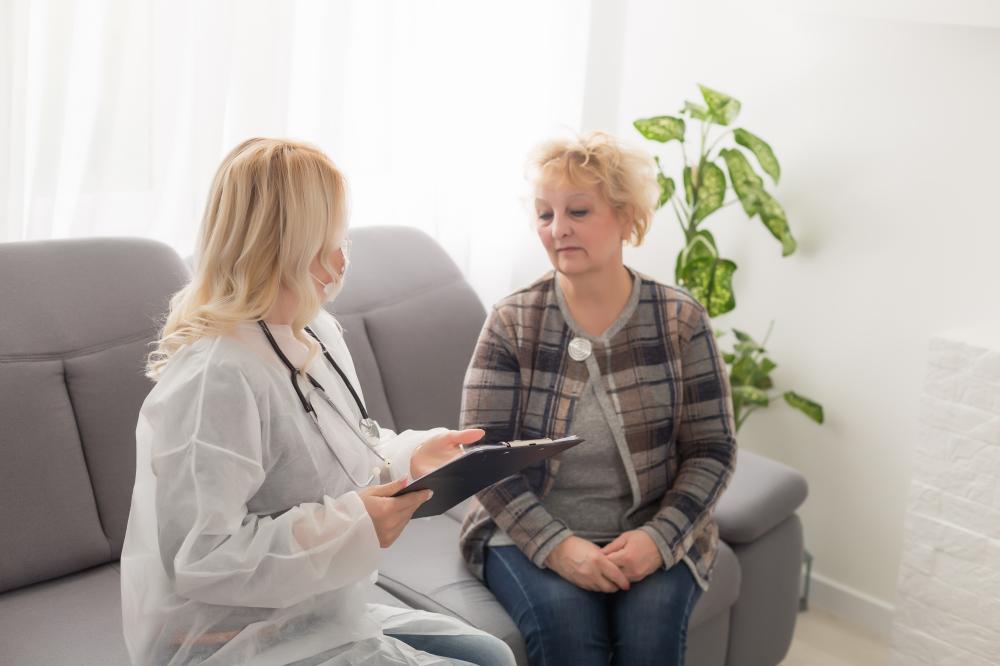
Understanding the Benefits of Bipolar Residential Treatment for Women
For women grappling with bipolar disorder, finding a treatment center that caters specifically to their needs can be a beacon of hope. Bipolar residential treatment women’s programs offer a sanctuary where individuals are not only understood but also provided with personalized care tailored to their unique physiological and psychological makeup. The journey towards stabilization and wellness is supported by a team of dedicated professionals in these gender-specific environments, offering a profound understanding of the complexities that bipolar disorder entails for women.
Why Gender-Specific Treatment Matters
The nuances of bipolar disorder and its impact on women call for a specialized approach. Biological factors, including hormonal fluctuations, can significantly influence the mood and behavior of women with bipolar disorder. Gender-specific programs address these unique challenges, ensuring that treatment plans are holistic and comprehensive. This acknowledgment of the biological and social factors affecting women significantly enhances the efficacy of bipolar disorder treatment.
The Comprehensive Care Approach
Programs dedicated to bipolar residential treatment women recognize the importance of a multi-faceted approach to healing. Treatment encompasses more than just medication; it includes therapy, lifestyle adjustments, and coping mechanisms that collectively aim to empower women to manage their disorder and lead fulfilling lives. Cognitive Behavioral Therapy (CBT), Dialectical Behavior Therapy (DBT), and individualized therapy sessions are common components of these programs, tailored to address the root causes of bipolar disorder and equip women with tools for long-term stability.
Tailored Therapy and Support
Every woman’s experience with bipolar disorder is unique, making personalized care essential. Therapeutic interventions are designed to meet each resident’s specific needs, facilitating an understanding of their condition and the development of strategies to cope with it. This individualized attention ensures that women are not only treated but also educated about their disorder, fostering independence and self-advocacy in managing their health.
Creating a Healing Environment
The setting in which treatment is provided plays a critical role in the recovery process. Residential treatment centers for bipolar disorder in women are designed to offer a tranquil and secure environment, free from the stresses and triggers of everyday life. This serene backdrop supports mental and emotional healing, allowing women to focus entirely on their recovery journey. The sense of community found within these residential programs also provides a network of support, understanding, and shared experiences, which is invaluable for women navigating the challenges of bipolar disorder.
Holistic Wellness
Addressing the physical aspects of bipolar disorder is just one piece of the puzzle. Comprehensive treatment programs for women also incorporate elements of holistic wellness, including nutrition planning, physical fitness, and recreational therapy. These components contribute to overall well-being, supporting the body’s health, and enhancing mood stability. By fostering a balance between mind, body, and spirit, women are better equipped to manage their disorder and pursue a healthier, more balanced life.
The Role of Family Involvement
Understanding and managing bipolar disorder is not a journey that should be undertaken alone. Family involvement in the treatment process can significantly enhance recovery outcomes. Educational sessions and family therapy provide loved ones with the insights needed to support the individual’s recovery journey. This collaborative approach strengthens familial bonds and establishes a supportive network that extends beyond the confines of the treatment center.
Long-term Support and Community Integration
The goal of bipolar residential treatment women‘s programs is not just to stabilize the individual during their stay but to prepare them for successful reintegration into their community. Post-treatment support, including alumni programs and outpatient services, ensures that women continue to receive the guidance and support needed as they transition back into their daily lives. This ongoing commitment to their well-being is crucial for maintaining stability and preventing relapse.
Empowerment Through Education
Knowledge is power, especially when it comes to managing a chronic condition like bipolar disorder. Educational workshops and seminars are integral components of residential treatment programs, equipping women with a deeper understanding of their condition and the skills needed to manage it effectively. This educational approach empowers women to take control of their health and fosters a sense of agency over their recovery journey.
A Beacon of Hope
In the end, the journey toward mental health and stability is profoundly personal yet universally challenging. For women living with bipolar disorder, residential treatment programs offer more than just medical care; they provide a pathway to rediscovering their strength and resilience. Through comprehensive care, personalized support, and a dedicated focus on holistic wellness, women can embark on a journey of healing and empowerment, supported every step of the way by professionals who understand their unique needs and challenges.

What is the treatment for bipolar in women?
The treatment for bipolar disorder in women typically involves a holistic approach that caters to both the psychological and physiological aspects of the condition. At our facility, we prioritize a comprehensive care plan that encompasses medication management, individualized therapy sessions, and lifestyle adjustments. For women, this might also mean addressing hormonal fluctuations that can impact mood stability. Our goal is to empower our residents with the tools they need for long-term management of their disorder. Personal anecdotes from our past residents highlight the transformative impact of receiving treatment in a gender-specific environment, underscoring the value of tailored care.
Can bipolar disorder be treated at home?
While certain aspects of bipolar disorder management can be handled at home, like adhering to medication schedules or practicing learned coping strategies, the complex nature of bipolar disorder often necessitates professional intervention. At-home treatment without professional guidance might not adequately address the full spectrum of the disorder, especially during acute episodes or when adjustments in treatment are needed. However, integrating family support and creating a conducive environment at home can significantly complement professional treatment plans.
What is the most effective treatment for bipolar disorder?
The most effective treatment for bipolar disorder is often a combination of medication and psychotherapy tailored to the individual’s specific needs. Cognitive Behavioral Therapy (CBT) and Dialectical Behavior Therapy (DBT) have shown considerable success in helping individuals manage symptoms. The effectiveness of these treatments is markedly improved when combined with a supportive living environment, such as the one we offer, which also includes holistic wellness practices and education on the disorder. The key is a personalized approach that addresses both the biological and emotional aspects of bipolar disorder.
What support group is loving someone with bipolar?
Supporting a loved one with bipolar disorder can be challenging, and finding a community that understands your journey is crucial. Family support groups, either in-person or online, can offer immense relief and understanding. At our center, we encourage the involvement of families through educational sessions and therapy, creating a supportive network. It’s not only about the individual’s journey through bipolar disorder but also about empowering their loved ones with knowledge and coping strategies, ensuring that they have the support and understanding needed to navigate this path together.
How does holistic wellness integrate into bipolar disorder treatment for women?
Holistic wellness plays a pivotal role in the treatment of bipolar disorder for women by addressing not just the mind but also the body and spirit. Our approach includes nutrition planning, physical fitness, and recreational therapy to support overall well-being. This integration helps in stabilizing mood, reducing stress, and improving physical health, which are all critical for managing bipolar disorder. Anecdotes from our residents often reflect a profound appreciation for the holistic components of their care plan, highlighting the positive impact on their recovery journey. The inclusion of holistic wellness practices encourages a more balanced lifestyle, contributing significantly to long-term stability.






